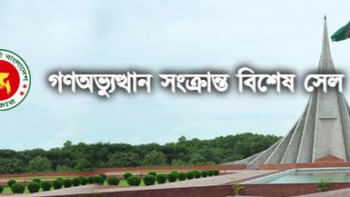Could we have avoided the fuel price hike?

There is an uproar, at least among civil society forums, the media and common people, regarding a recent government decision to increase the price of diesel and kerosene by Tk 15 per litre each.
The situation quickly deteriorated as transport operations called a nationwide strike soon after the price hike was announced, causing untold sufferings for commuters.
The state-owned Bangladesh Petroleum Corporation (BPC) reportedly incurred losses of Tk 11,478 crore in diesel sales over the past five-and-a-half months for not adjusting local fuel prices in line with that of the international market.
However, many vested quarters feel that a sudden increase in fuel prices of this magnitude is not the right way to offset these losses.
Although the non-partisan caretaker government almost decided to tag local fuel prices with that of the international market in 2007-08, the World Bank previously recommended that increments can be periodic and so, major communication campaigns should be launched beforehand to inform people about the rationale behind a potential increase.
It could be considered common knowledge that the Bangladesh Energy Regulatory Commission (BERC) was assigned to this task.
Available statistics indicate that the prices of diesel and kerosene make up just a small portion of spending by lower-income groups, providing the government stronger ground for the necessary upward price adjustment.
Still though, the abrupt decision that is seemingly void of good administrative diligence, has put the concerned authorities on the back foot as they are struggling to convince larger stakeholders of the correctness of their decision.
As such, almost all felt that the authorities should have discussed the matter with stakeholders in the greater interest of growing their businesses.
But despite the recent hike in the local price of diesel, Bangladesh still offers the fuel at a cost lower compared to most of its South Asian peers.
Data shows that only Pakistan and Sri Lanka sells diesel at lower prices than Bangladesh while the fuel is more expensive in India, Bhutan, Maldives, and Nepal when taking its equivalent value in taka into consideration.
Diesel costs about Tk 109 per litre in India, Tk 96 per litre in Bhutan and Tk 83 per litre in Nepal, just three taka more than the price in Bangladesh.
On the other hand, Sri Lanka and Pakistan, have so far managed to keep prices at staggeringly low levels. In Sri Lanka, diesel is sold for about Tk 47, or around 60 per cent less than its cost in Bangladesh. While it is around Tk 72 per litre in Pakistan.
Besides, both countries charge well below the average international price, which currently stands at about $1.13 per litre, or roughly Tk 97.
We have seen that fuel prices differ from country to country as rich nations usually have significantly higher fuel prices compared to their poorer counterparts, especially those that produce oil.
Countries like Bangladesh have been subsidising fuel prices regularly to help consumers cope with the higher oil prices in the global market.
We have heard ministry and BPC sources saying that in determining the price of diesel and kerosene, many issues have been given priority, including the prices of fuels in neighbouring countries as well as the internal subsidy architecture.
The BPC also issued a letter to curb fuel smuggling in border districts, echoing what we have heard from the state minister pf power, energy and mineral resources. As fuel prices have been rising in the international market since the beginning of the current fiscal year, the BPC has been facing losses in the case of diesel -- the most-used fuel.
It was also noticed that people in the border areas smuggle fuel products out of Bangladesh whenever the prices are comparatively low in the country to sell the fuel at a higher price in neighbouring nations.
In one sense, Bangladesh in using its hard-earned foreign currency to supply fuel to people in neighbouring countries, or at least the inhabitants of border areas.
So, some government officials were even heard saying that the prices were adjusted to prevent such smuggling.
The concerned ministry mentioned that due to the rising price of fuel in the international market, like neighbouring India and many other peer countries, Bangladesh has also decided to adjust local prices.
However, the sad part is that the government never reduced fuel prices when global prices were low.
We have heard former finance minister AMA Muhith saying that even when international fuel prices were low, they did not reduce the local prices in order to cover previous losses incurred by the BPC. This casts doubt on the recent decision to abruptly hike domestic fuel prices.
The way governments in the past and present have adjusted fuel prices were not at all aggressive in their intent for capacity building at the BPC and other fuel marketing companies or getting rid of corruption and inefficiency in the decision-making process.
For known reasons there have been, and most likely will be, more ups and downs in the international fuel market but countries that could partially or fully operate in the commodities futures market could book most of their fuel procurement deliveries at a lower or planned rates. However, this is something Bangladesh could not do due to age-old legal constraints.
Going forward, the government should be more focused on creating synergy in public sector undertakings; the public expenditure committee should apply more diligence in making their financial management strong, and make sure they are audited regularly by competent firms and audit objections are taken very seriously.
The possibility of engaging local or international private sector entities may also be considered in the import, refining and distribution of fuel.
Timing is of paramount importance for any government, especially in the way any change or shifts to the economy are being communicated to broader citizenry.
The author is an economic analyst.


 For all latest news, follow The Daily Star's Google News channel.
For all latest news, follow The Daily Star's Google News channel. 



Comments